Photographs: David Silverman/Getty Images
With constant surveillance and monitored bathroom use, the BPO worker is not just partying says Shehzaad Nadeem
While offshoring is motivated by the prospect of significant cost-savings, many companies have reported substantial productivity gains, ranging from 15 to 25 percent.
Consultants McKinsey report that one 'British bank's call-center agents in India not only process 20 percent more transactions than their counterparts in the United Kingdom but also do so 3 percent more accurately'.
Gains can be accounted for by the fact that wages are lower and thus companies are able to spend more on supervision and training.
Workers may also be more motivated as the jobs have higher prestige in India than in the United States and United Kingdom.
An executive says that Indian employees are more productive because 'they're better qualified, they're better educated, they're younger'.
Additionally, managers often give cultural explanations, arguing that Indian industriousness is a product of the culture's emphasis on education.
One manager speaks admiringly of the 'Indian psyche'.
In call centers, at least, gains in productivity may have less to do with age, motivation, or cultural inheritance than with an accelerated work pace and technologically induced efficiency.
Larger call centers use automated dialing technology, through which numbers are dialed automatically and workers are fed only live calls.
According to one manager, the rate of calls is variable: On average an American worker might have 45 seconds to one minute between calls, whereas an Indian worker would have only 5 to 10 seconds. By eliminating "idle time," nominal working hours remain the same but real working hours are lengthened.
'There isn't a break after every call'
Image: According to call centre executives, they get barely few seconds between two callsPhotographs: Rediff Archives
One worker, Adnan, says that in a day they handle about 200 250 calls, of which 80 90 last a minute and 50 60 last between three and five minutes.
"It's a source of stress. You don't have a long gap after every call," Adnan says. His coworker, Preethi, adds, "It's seconds. There isn't a break after every call, though I would rather do an 8-hour than 10-hour shift with longer breaks."
Busy hours do not preclude an extension of the workday when necessary. A former worker complained that her shifts occasionally extended from the required 8 to 10 hours and that she handled hundreds of calls daily.
Workers also complain about not receiving their promised salaries. Managers respond that this is because a large portion of one's 'salary' comes in the form of incentives, which are based on performance and adherence to predefined parameters.
Two major components relevant to our argument are talk time (the quicker you can dispatch a customer the better) and the intervals between calls (a matter of seconds). The result is an internalisation of time-discipline, which is manifested in a psychological pressure to perform.
"If I can't achieve targets, it leads to an in-built stress. We know what we have to do every day. It's our own mind telling us, 'You have to do it'. The only thing we do is talk, talk, talk. We have about two seconds for the next call. Sometimes, though, you do have a long break. Those are the times we party," says Preethi, looking at Adnan, who is looking at a coworker who is looking out the window.
Yet even breaks are a matter of dispute. Despite the bright furnishings and the game rooms, the conditions of work can be exacting.
Breaks (including dinner, which might take place at two in the morning) are strictly monitored, and one worker complains that they 'are not given on time, if at all'.
'We have to plan to fall sick'
Image: Leave policies in BPOs are a matter of contentionPhotographs: Rediff Archives
One worker says that they are denied weekly days off and that 'sometimes we don't even get breaks if call flow is high'.
Leave policies are another matter of contention: You can't fall sick. You have to plan your sick leave in advance. It's almost like having to say, "I'm planning to fall sick in three weeks."
They don't have a real sick leave policy. Someone had a bad fall once and they wouldn't sanction the leave at first. She came to work in intense pain and only then was told that she could go. They want you to come in first. Also, if one is sick, then they don't get incentives because the sick days are construed as leaves, unless planned.
Another worker says that he cannot attend out-of-town gatherings because of work timings. Leaves are hardly an option:
"If we take more than one leave, then we will have to pay from our salary. And without money we cannot fulfill our social and family requirement."
At the same company, workers must ask permission from a superior to use the bathroom -- the visits of which are timed.
In one case, a worker named Neeta was dealing with a particularly cumbersome inbound call.
Thirty minutes in, she requested permission from her team leader (TL) to use the restroom, the normal protocol being that another worker or superior would handle the call from there. But the TL did not allow her to get off the line, and 20 minutes later when the call was completed, he congratulated her with a paternalistic smile and said, "I knew you could be a good rep if you put yourself to it."
In this, Neeta's company is hardly unique.
According to one study, "62 percent of managers say that their employees have little or no discretion to handle unexpected requests that arise in the course of customer calls and 70 percent say there is little discretion to handle customer complaints." For the company, the end result was an uninterrupted and successfully handled call.
After writing a letter to management itemising this and other abuses, Neeta's services were suspended, officially for 'dropping calls'.
'Operational heads regularly clock 17-18 hours each day'
Image: There are no fixes hours of work in the BPO industryPhotographs: Rediff Archives
The IT magazine Dataquest released a study that found that long hours are the leading cause of stress for workers, followed by work timing. As it surveyed workers at some of the largest employers in the outsourcing sector and is largely pro-industry in outlook, the findings are worth quoting at length:
"Any average agent works for 11-12 hours per day -- the number goes up to 14 in case of companies that encourage overtime. The plight of the operational heads is worse -- they regularly clock 17-18 hours per day working their shift besides staying back for customer conference calls."
The 'mandatory' workday is from 9 am to 6.30 pm, but workers regularly end at 7 pm and sometimes as late as 11 pm.
Saturday is also a full workday. Likewise, many workers I interviewed spoke of frequent 12- to 14-hour workdays. Seeing long hours as a positive thing, one executive mused,
"Here people are much more willing to sacrifice their time and do things."
Workers at small to midsized companies fare no better.
Manoj a manager at a midsized firm contrasts Infosys (a 'good paymaster') with smaller companies 'that exploit their workers too much'.
Employees routinely work over 60 hours a week, he says, and 'too much pressure is given to the developer to complete work'.
There are also occasional power shortages. When they occur, "Developers have to stay longer and work through the outage. Sometimes people have to work 18 20 hours continuously. It makes me feel like I should leave the industry, but there is satisfaction when I complete the work."
There is also the satisfaction of being able to buy his first car, a sand-colored Tata Indica.
This and the serenity of domestic life in which the discordant complexity of work is resolved into a harmonious simplicity: Salubrious meals cooked by his mother-in-law, a playful child and loving wife, and a meditation alcove from which the sinewy young manager returns with hazy eyes and a light smile that says, "Really, this is all a game, is it not?"
Given these issues, one might wonder about the policy options available to limit the adverse impacts of long and irregular working hours. Mindful of the social consequences of the '24-hour society', the European Union released a 'Working Time Directive,' which lays out guidelines on the scheduling of shifts, rest periods, and work hours.
It is unlikely that such a directive will ever apply to the offshore partners of EU companies. Nor is it likely that Indian companies will welcome the imposition of 'foreign' labour standards.
'Indians work hard because we are a poor country'
Image: According to a CFO of one of India's largest ICT companies, we work hard because we're a poor nationPhotographs: Rediff Archives
The CFO of one of India's largest ICT companies puts the issue of long and busy hours in comparative perspective:
"People work very hard. And why do people work hard? They do so because they're a poor country. They're growing up. India's a poor country. So every country has worked hard. Koreans have worked hard; the Japanese have worked hard; the Germans have worked hard. To grow your national economy, a couple generations work extremely hard. People in the US worked hard; People in the UK worked hard. Once you become wealthy, you work less, right. A wealthy country cannot dictate to an emerging country and say, 'You work less'. It's not going to happen because everybody's at a different state of development."
Thus in addition to cost, part of the attractiveness of Indian labor to corporations is its willingness to 'work hard'.
Software developers who visited their US parent office for training said that American employees generally stick to a nine-to-five schedule.
They, on the other hand, frequently have to stay into the evening to attend conference calls with 'on-site' personnel. They then stay on to fix software glitches, which leads to 'more than eight hours of working a day'.
As an employee who has made frequent visits to the New York office remarked, "People tend to work more here. We work later hours. We accelerate the pace in the evening."
A manager in the US office says that the extended hours were unintentional: They simply were not mindful of the time in India.
"We have a big clock now that's set to Chennai time on the wall. It's not that big, perhaps it should be bigger, but we are much better about it now," he says.
In the US, people are better at meeting deadlines
Image: Dead Ringers: How Outsourcing Is Changing the Way Indians Understand Themselves. Inset: NadeemA BPO worker who previously worked at Reuters's offshore office in Bangalore says that in the United States people are better at meeting deadlines.
Indians, by contrast, "are not all that cool with it. We work longer hours to meet their timelines. We're having to raise the working level."
She adds that her parents are not very comfortable with her working late.
Commutes to suburban work-sites can take up to two hours in company vans and taxis --as workers are picked and dropped in groups -- which can extend the "work day" considerably.
Says one call center worker of his nightly commute: "It's sightseeing in Bangalore. They should provide a greater number of cabs, but they think to cut costs first. Service is not up to the mark. They put all of Bangalore in one cab."
Long hours and overtime can also negatively affect health. A growing body of research indicates that overtime and extended work schedules increase the risk of hypertension, cardiovascular disease, fatigue, stress, depression, musculoskeletal disorders, chronic infections, and diabetes, among other things.
In sum, Indian ICT employees work long hours and are often squeezed on overtime pay. Moreover, simply looking at the length of work hours masks their qualitative density, revealed in infrequent breaks and heightened intensity.
Excerpted with permission from Dead Ringers How Outsourcing is Changing the Way Indians Understand Themselves (Princeton University Press), by Shehzaad Nadeem


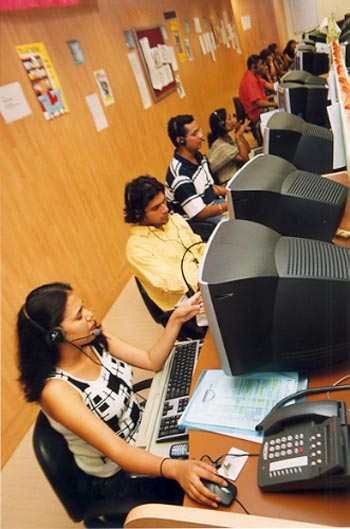
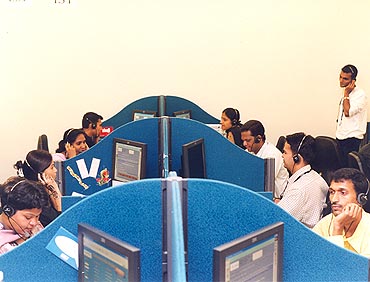
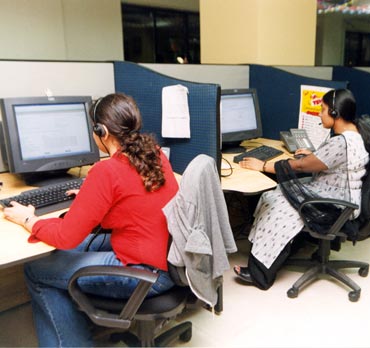
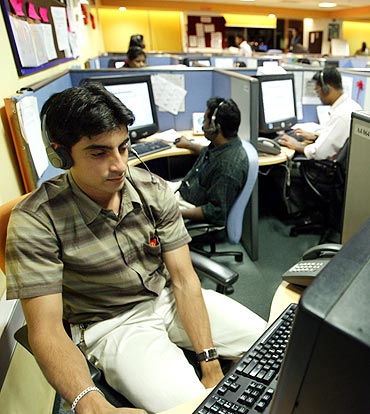
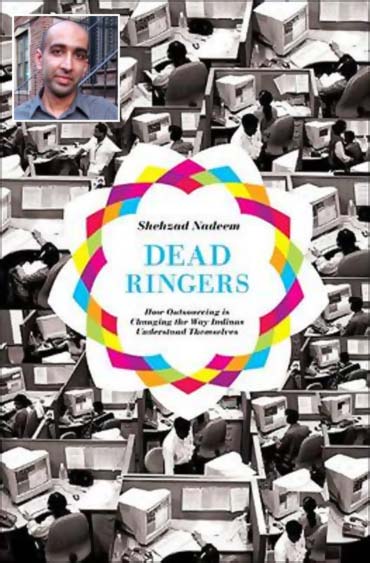
Comment
article